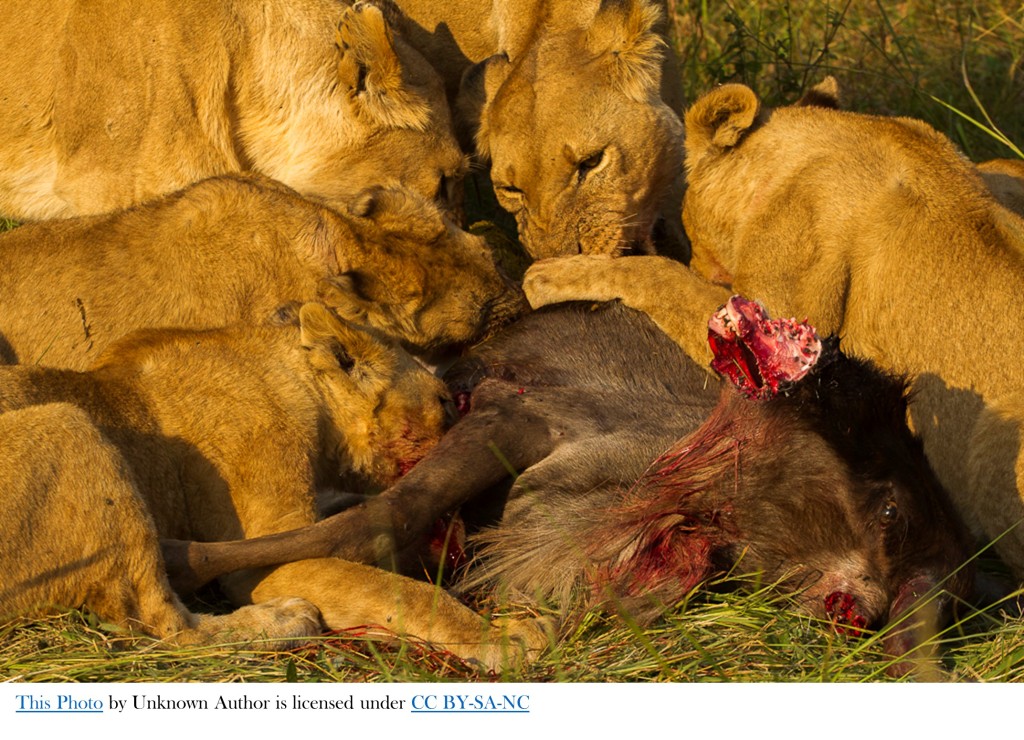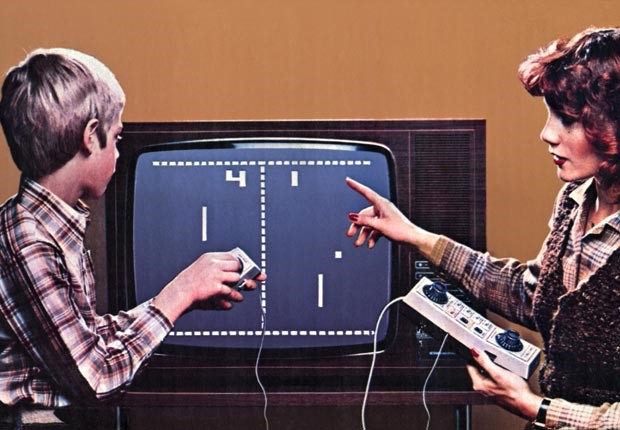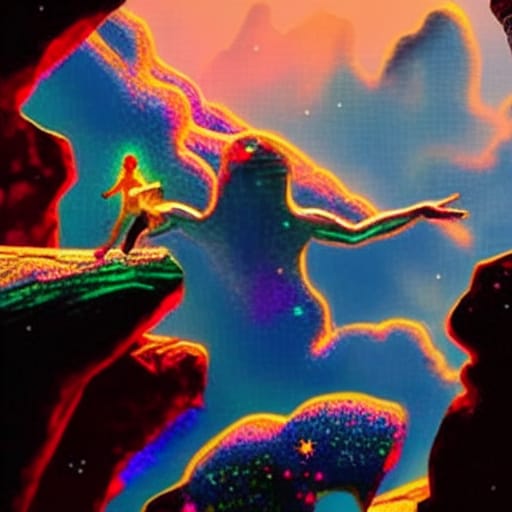A World Without Money

Imagine… Imagine a world where Greed is pointless. Everyone has all they need. Why horde food when you already have all you can eat? What’s the point of having more of anything than someone else when you already have all you need? Imagine The Unimaginable. Imagine a world without money.
I know. The thought is staggering. Interestingly, while there are 7.7 million other species on this planet, we’re the only ones who ever needed money. Sharks don’t pay each other for food. Lions don’t loan each other money at 7.9% interest to partake of this evening’s zebra. An earthworm never paid for the privilege of slithering through the Earth. We’re unique.

You can say that the only reason we work is to make money, and in the world in which you and I live, that’s probably true. But we’ve been on the planet, in one form or another, for as long as 300,000 years, and we’ve used money for only the last 5,000 to 40,000 years, depending on whom you ask. In any case we went more than a quarter million years without it. True, we began to advance more quickly when money showed up on the stage, but I have confidence we could have found another way. Even if that’s not true, it has certainly outlived its usefulness. We have continued to evolve, and our social systems are lagging behind our technology.
We assume that it is natural — in fact, unavoidable — to be greedy. We want more than we need today in case we start running low tomorrow. I understand that. I just ordered 9 36-packs of Diet Pepsi because Costco had a good deal, and I don’t want to run out… before my next paycheck.
I wouldn’t do that, though, if I didn’t have to worry about when I would have money again. Why take up all the space on my counter if I can get more whenever I want it? I would have enough around for today, probably tomorrow, and, if I had plenty of room, maybe as far as next week, but only because I’m too lazy to push the buttons on my phone to order more every day. Beyond that, there would be no point. And I just used the evil word, didn’t I? Lazy!!!
We’ve been taught to believe the Greatest Virtue is work. Work earns us money. Money buys us freedom and progress. Laziness is a sin. If everyone were freed from the chase for dollars, we would lie around all day and do nothing.
Except…
I don’t think we would. “I don’t know about anyone but me,” as Jackson Browne so eloquently put it, but when I have enough, I become truly productive. I spend my time writing. I spend it enjoying other people’s Art. There’s no crime in watching Netflix, or reading a book, or listening to music. I stare sometimes at the paintings in my house and let them fill me with emotions I can’t quite name. None of these activities is laziness. They are all pieces that go into making my life meaningful. They nourish my soul.
What would you do if all your time belonged to you? I know several people who would create Arts and Crafts. I know others who would smoke weed all day and think about someone they love. The man who saved my life would probably be producing the greatest podcast in the world. He’s younger and has more energy than I do, and he possesses technical skills that blow mine out of the water. Sadly, for us, he has to spend most of his time chasing the money he requires to feed his family. What he does is helpful, to be sure. I would like that to be, however, something he chooses to do rather than something he is forced to do.
I have a friend who makes money sitting around playing a video game, and I’m happy for him. Video games aren’t my gig, but they are absolutely an Art form, and I’m impressed by the creative effort that goes into producing them. Experiencing Art enhances one’s life. It gives the artist a little touch of immortality. Shakespeare is around more than 4 centuries after his death. (I hope to make it for 4 weeks beyond my demise.) The paintings on my wall, in their original forms, are more than a hundred years old, and Van Gogh is still with me. Yes, mine are copies, and I have great respect and gratitude for the people and technology that created them. Long after I’m gone, my original Agnew painting of Speedy Shine will be staring out at someone who needs a little love. My uncle’s paintings will still bring a sense of wonder long after he’s gone. The people who created Gary’s video games will be remembered centuries after anyone is playing their games anymore, if not by name, then by the fruits of their labors. The person who created Pong opened the door for the most advanced video games you’ll ever play.

I have no doubt that those artists made some money, but I don’t think that was their primary motivation. If no one ever had to go to work again, what would we do? I have no doubt someone would try to create a better video game, not for the money, but for the experience of playing something even cooler. They do it now. “Mods” are available for nearly any game, and few people make money creating them.
We would free scientists of every sort to work on what interests them. We’ll never know how many Einsteins or Hawkings we lost to Circle K and McDonald’s. How many times has the next Marie Curie asked customers how they would like their steaks cooked? And if we freed these folks to work on the questions that fascinate them, no one would need to do those jobs anymore. We can automate nearly anything now, and we’re getting more efficient at it all the time. When was the last time a cashier rang you up at Wal Mart? Instead of hating automation, we should herald it as the first step into a world where money is irrelevant. It allows humans to be free to turn our attention to our passions.
“We don’t have the resources for everyone to have whatever they want!”
I’m sorry, but that’s simply not true. You’ve heard me quote the statistics over and over on this show. We do have enough food and shelter for everyone on Earth, and, if we made better use of our resources, we could preserve the planet a little longer. That’s really the biggest problem we all share. If we continue down this path, it won’t be long before we exhaust those resources. We’ve done sufficient damage to the environment that within less than a decade we’ll be fighting wars over water. Forget gold. Water is the source of life. We’re only a few years away from The Colorado River being unable to supply us with the water we need in Arizona. What will we do then?
I’m not smart enough to solve this problem, but other people are. I don’t want them to spend their lives asking if I would like fries with that. I want them to figure it out. So do you. Whatever it is you love to do, you can’t do it without water.
When the wars come, millions more will die. Wars exist because they make money. People are specially trained to kill so that people can make money. Children are in cages so that people can make money. Borders are guarded by people with guns so that people can make money. Religions are founded and then crumble so that people can make money. All of this because someone, somewhere, doesn’t have… Enough.

I’ve had Enough of war and destruction and bloodshed. I’ve had Enough of racism and misogyny. I’ve had Enough of hatred. I hope you have, too.
I have Enough food to eat today. I have Enough Diet Pepsi. I have Enough weed. I have Enough insulin. I have Enough. I have no desire for more. I would certainly take it if someone offered it to me, but I don’t need more. Not tonight. I hope you have all you need, too.
People aren’t naturally greedy. I made my first spareribs in a crock pot tonight because another writer I barely know likes my work, and she gave me both the meat and the appliance. This is who people are when we give them Enough.
I will need more when what I have runs out. If I’ve done everything correctly, that won’t be until my next money arrives so I can get more. It’s not that the planet can’t provide me with Enough… right now. It’s that we’ve decided I’m not allowed to have it until I have more money. I suspect you’re in a similar situation. Millions in my country, and billions on my planet, don’t have Enough to eat tonight. We have the resources, but they don’t have the money.
When everyone has Enough, there’s no more reason to fight wars. There’s no more reason to steal when you already have Enough. Why would you need to kill?
Enough allows us to learn, explore, and thrive. We can pursue our passions. We can learn to love more completely. And isn’t everything, finally, about Love? Whether it’s the love of Art, or the love of romantic partners, or the love I share with Speedy Shine, it’s all still about Love. Love is what brought most, but not all, of us into existence. It has nurtured most, but not all, of us. It needs to be there for everyone. I promise love is not a finite resource. It’s love that brings me to my keyboard, thence to my mic, and thence to your eyes and ears. Love is what brings us together. And Love doesn’t require money.
Sara Niemietz is telling me to Shine while I write. And the recording to which I’m listening was made in February of 2020 just before the pandemic hit. And she dedicated the song to me that night while I sat in the audience. She is, at this very moment, bringing me back the feelings I had then. I can see my former roommate sitting next to me catching the glow of me Shining in the light of Sara and Snuffy’s music. “I’m not crying,” Sara says at the end of the song. “My makeup’s just running.” Of course she wasn’t. Of course I wasn’t. Certainly my former roommate wasn’t. And Valerie Bertinelli will be texting me to invite me to dinner tonight.
Art has this power. To deny the world of artists because they’re chasing rent and groceries is a crime against humanity. We’re all fortunate that Sara makes enough money from her Art to sustain her. How many Saras, though, will we never hear because they don’t have enough to do what Sara does? Why should we lose them when we really do have… Enough? How do we get there?

We begin by recognizing that we are all travelers on this rock tumbling through space. We’re not Americans and Russians and Mexicans and Jews and Christians and Muslims and White and Black and Brown. We’re not male or female or something in between. We’re humans. Full stop. Anything else is arbitrary and meaningless. Start with that idea as deeply rooted in your consciousness as The Puritan Work Ethic is now. Challenge yourself to imagine something different. Imagine… Enough.
I’m one. You make two. Now we need to get one country to decide that borders are a waste of time and resources. And then another needs to join that country. And another and another until the world has become One.
Then we use our resources to provide everyone with Enough. We put our best minds to work on the problem of freeing us from the work no one wants to do anymore. They’re done designing weapons of mass destruction and algorithms that will allow them to corner some market or make money for some hedge fund. These extraordinary thinkers get to work out how to repair the damage we’ve done to our environment. They can figure out how we’re going to break the speed of light so we can go explore strange new worlds. Perhaps some of us could visit the places The James Webb Telescope has recently revealed to us. We might learn to manipulate Time. Whom could we meet in Space?
Humans will learn to cure diabetes, so I won’t have to go to the hospital anymore. They’ll cure cancer. They’ll help us to live for centuries… and longer. They can devote their minds to figuring out how we can get along with others instead of how to kill them. Competition is left to games we play for entertainment. Cooperation becomes common. There are no more patents or copyrights because no one needs them. We all have Enough.
Is this world possible? Of course it is. We just need a little imagination. It was John Lennon, in music, one of the most powerful and universal forms of Art, who asked us to Imagine:
Imagine there’s no countries
It isn’t hard to do
Nothing to kill or die for
And no religion, too
Imagine all the people
Livin’ life in peace
You
You may say I’m a dreamer
But I’m not the only one
I hope someday you’ll join us
And the world will be as one
Imagine no possessions
I wonder if you can
No need for greed or hunger
A brotherhood of man
Imagine all the people
Sharing all the world
You
You may say I’m a dreamer
But I’m not the only one
I hope someday you’ll join us
And the world will live as one
— John Lennon, Imagine, 1971
John Lennon did his part. I’ve done my part. Now you do yours.
https://open.spotify.com/episode/2XAIFEg5F3er12rwPrhF5X?si=f4fb72c6cb154857




























